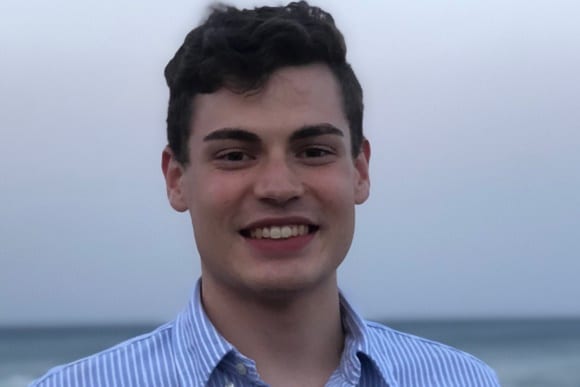
Mitchell St Clair-Glover
Neurological Disorders Research
‘Development of an innervated full thickness human skin model by 3D printing’
University of Wollongong, NSW
Awarded 2020
Co-funded by the Rotary Club of West Wollongong
“This project is innovative in combining the power of stem cells with revolutionary bioprinting techniques to produce an improved synthesised skin tissue.”
Researcher Profile
Mitchell St Clair-Glover is a student at the University of Wollongong currently undertaking a PhD in Medical Science. He has a strong passion for research and is excited by where it may take medicine in the future. In the laboratory, Mitchell works with stem cells to model human tissues such as nerves and the skin.
This PhD project extends on from Mitchell’s Honours research with stem cells in 2019, embracing new and exciting tissue engineering technologies.
Project Summary
This project aims to develop a system for the optimised production of a full-thickness skin with improved nerve growth. It involves the use of 3D printing with live human cells to synthesise the major components of the skin and related sensory nerves.
This project will encompass three main aims:
Aim 1. To develop and optimize ink formation for the 3D printing of human stem cell-derived sensory nerves – which provide sensations of touch, pain, and temperature. This will be completed to ensure the survival of cells through printing and to promote optimal growth and development.
Aim 2. To develop 3D printing protocols for the fabrication of skin-like structures comprising specific human skin cell types. These cells, such as keratinocytes, fibroblasts and sensory nerves, provide an array of essential functions that must be replicated to produce a functional skin.
Aim 3. To complete studies of the 3D printed skin in terms of structural organization, cellular secretion, physical barrier function, and nerve growth and function. This knowledge is critical to give evidence for the usefulness of the skin and will be used to further optimize the bio-printing platform.
Supervisors: Professor Gordon Wallace, A/Professor Mirella Dottori and Dr Zhilian Yue